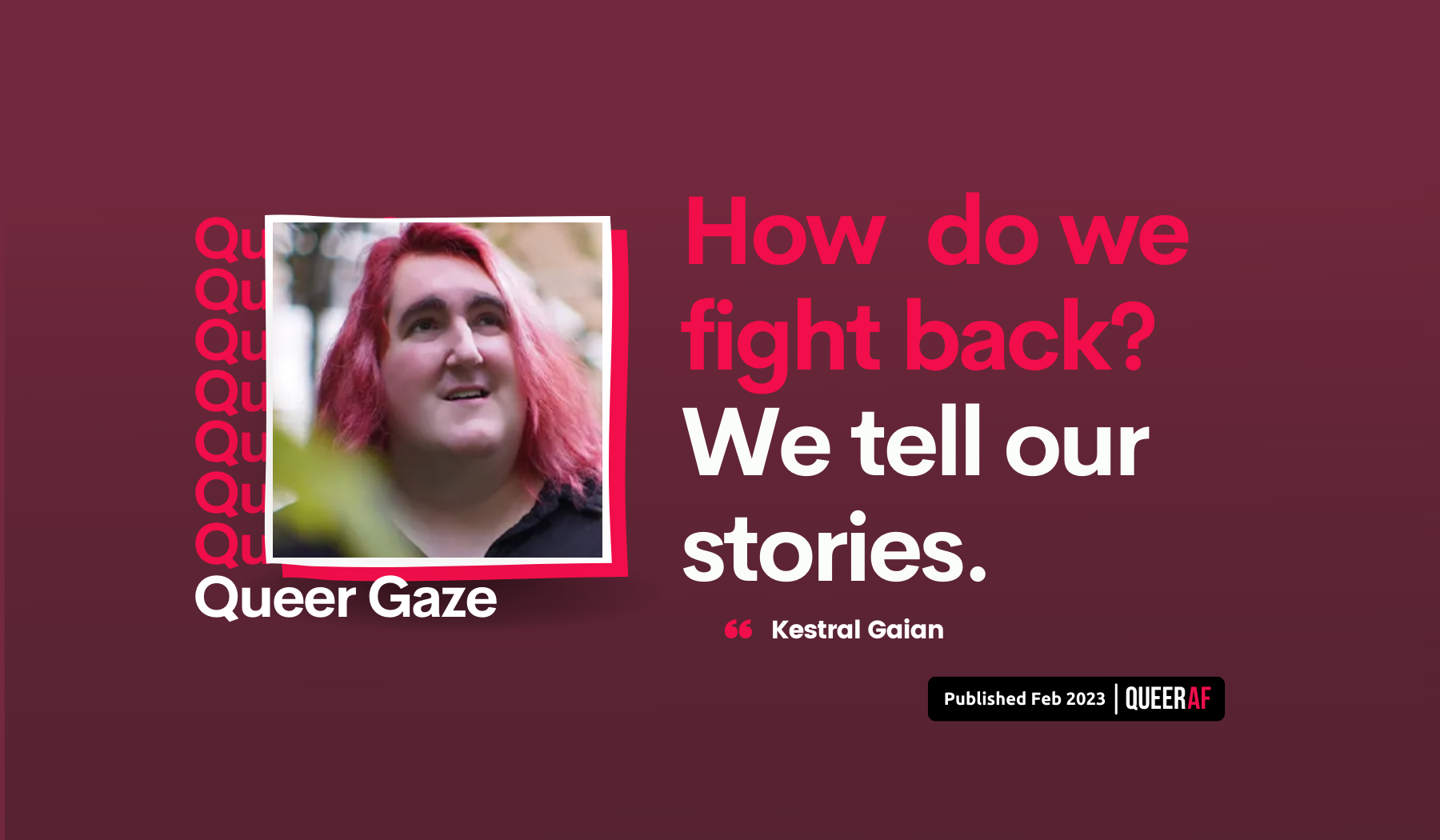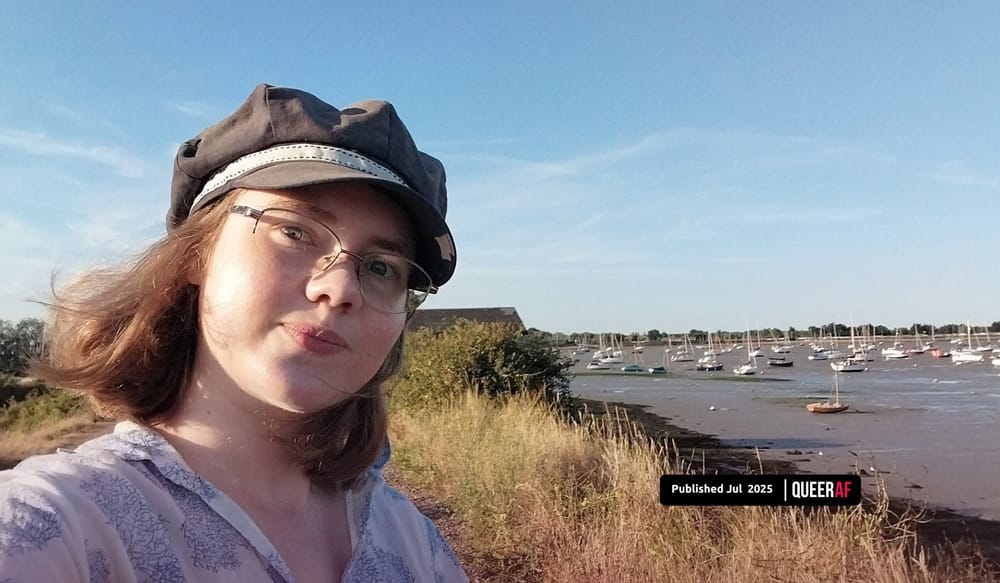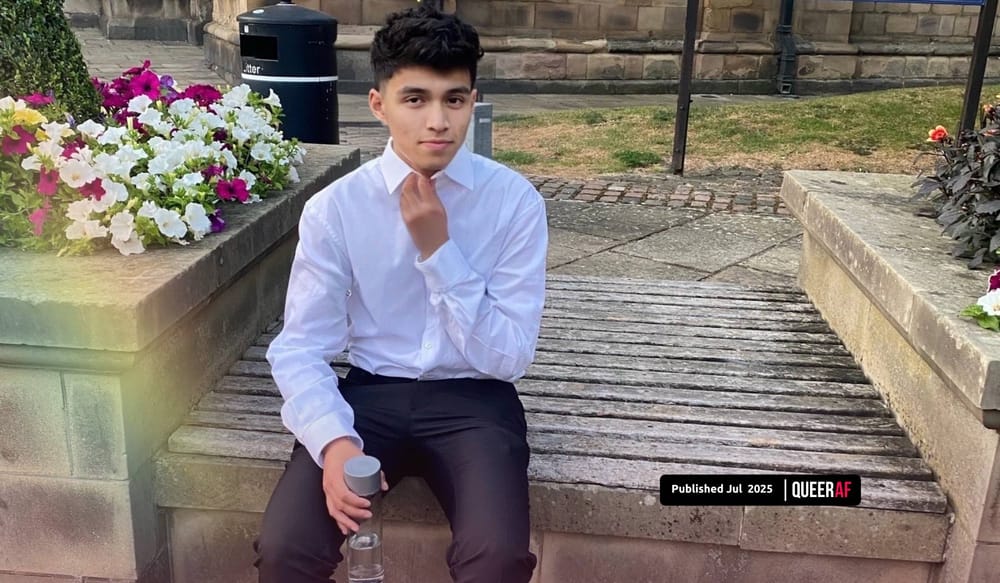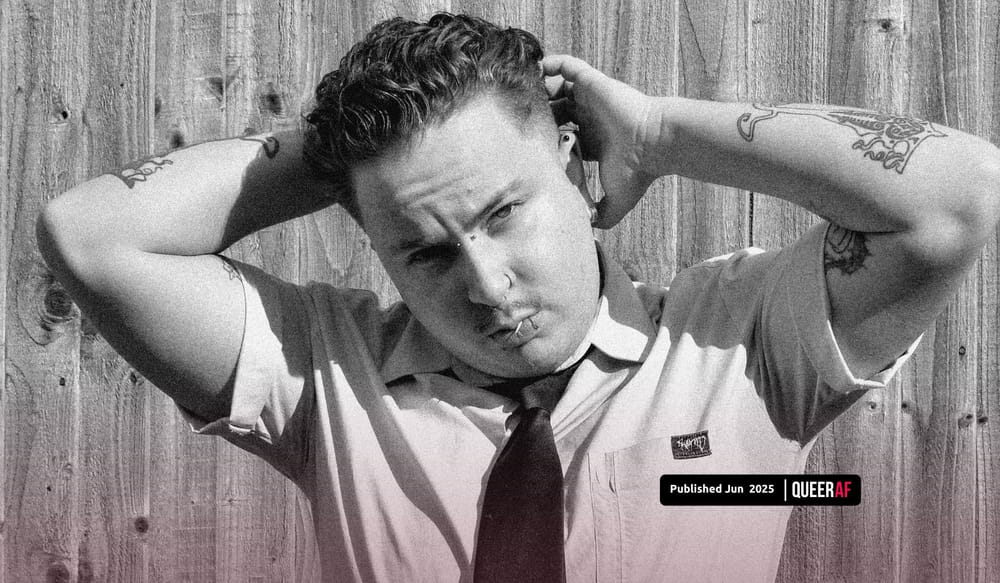
The main thing I learned at school was how to hate myself - and it's largely thanks to Section 28.
In May 1987, Margaret Thatcher won a third term in office for the Conservative Party. In her conference speech later that year she talked about the “plight of individual boys and girls” in the UK worrying her.
She thought it was a problem that they were being taught that it was okay to be gay and was determined to do something about it.
Within twelve months, she’d written a piece of law known as ‘Section 28.’
In just thirty-five word it banned schools or local authorities from promoting, discussing, or mentioning ‘homosexual lifestyles’.
It wasn’t repealed until the early 2000s.
Section 28 made my life a living hell
Growing up under this law left me feeling lost, confused, and alone. I didn't have any adults to ask questions. No reassurance from queer elders. No validation when I started exploring my gender identity and expression.
I know first-hand what living under the UK’s original “don’t say gay” law was like. And now I’m furious that it looks as though history might start to repeat itself.
Over the past five years, we’ve heard countless stories about the same kind of law popping up in other places. In 2022, Florida signed into law a “don’t say gay” bill bearing a striking similarity to our own.
In Turkey, a similar law was passed, and in Russia, the law was even tighter, labelling anything remotely queer-friendly as ‘propaganda’ which must be met with punishment.
A local authority "shall not intentionally promote homosexuality or publish material with the intention of promoting homosexuality" or "promote the teaching in any maintained school of the acceptability of homosexuality as a pretended family relationship".
- The 35 words of Section 28, that shackled teachers from helping a generation of young LGBTQIA+ kids
Is Section 28 happening again?
We’re only just entering the second month of 2023, but here in the UK there’s already been a petition circulating that asks the government to ban teaching of LGBTQIA+ identities in schools once again.
Thankfully the community responded with a counter petition, prompting the government to state “The Department for Education has no plans to change its advice to schools on this subject.”
But the tide of anti-queer rhetoric seems to be rising once again.
Perhaps it’s no coincidence that, from a law containing only thirty-five words, we’re now debating Section 35 of the 1998 Scotland Act, which the government have recently relied upon to block transgender healthcare reforms from becoming law in Scotland?
It’s starting to feel a lot like 2023 is yet another year in which we’ll see hate crime rise, and media headlines continue to slide further toward the hateful and unfair.
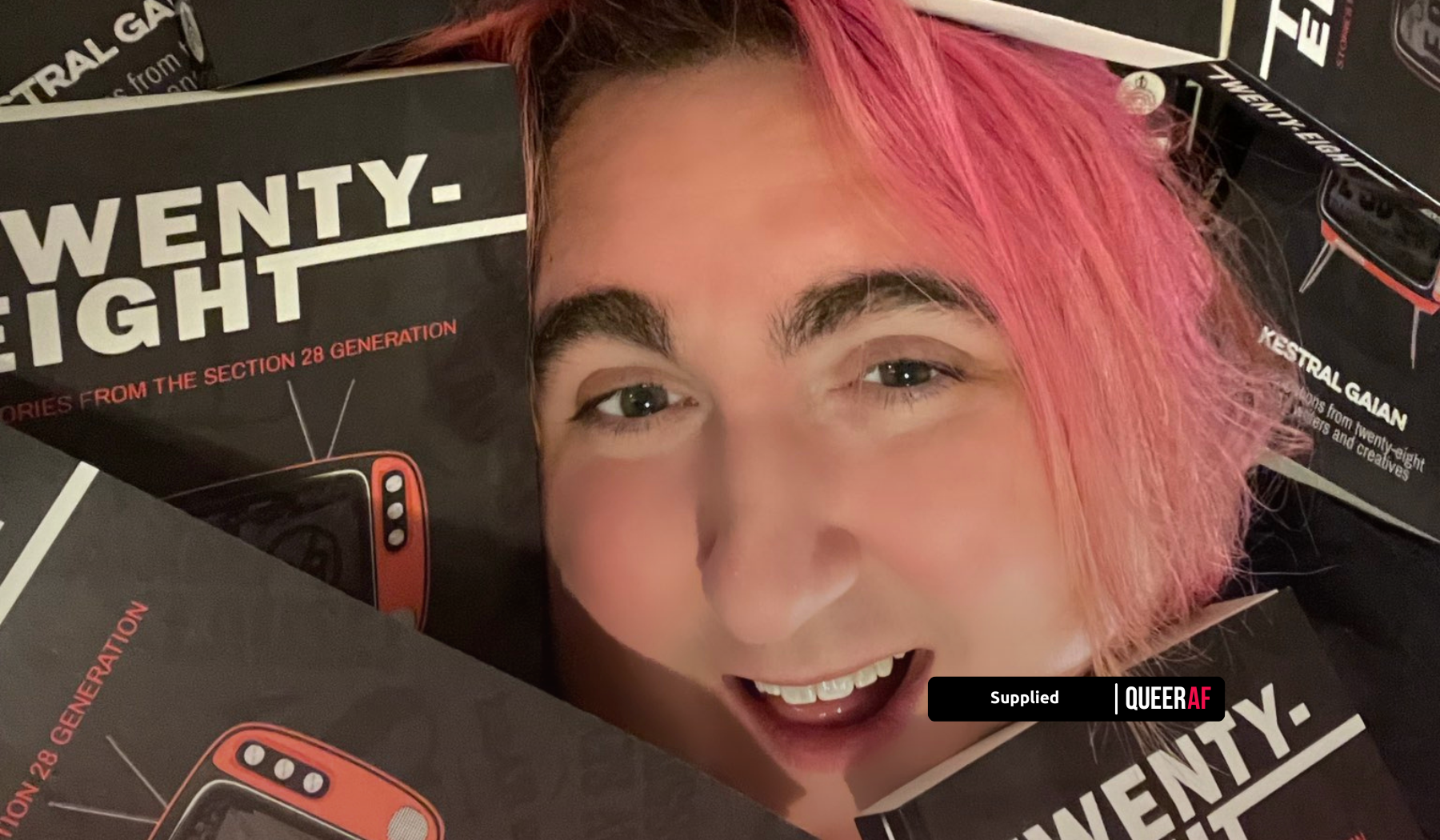
So how do we fight back? We tell our stories.
For the past two years, I’ve been working on a book which features stories from people impacted by Section 28.
The response to my initial call-out for people to share their stories was huge, and the book - now released - contains twenty-eight complete stories of people who lived in the shadow of the UK’s original “don’t say gay” law.
Telling my own story in this book has been healing, freeing and helped show those around me the damage that laws like this can do.
It took me years to undo the internalised shame, homophobia, and transphobia I felt towards myself. But now?
I’m free, and I hope you’ll join me in shouting from the rooftops: we must not let history repeat itself!
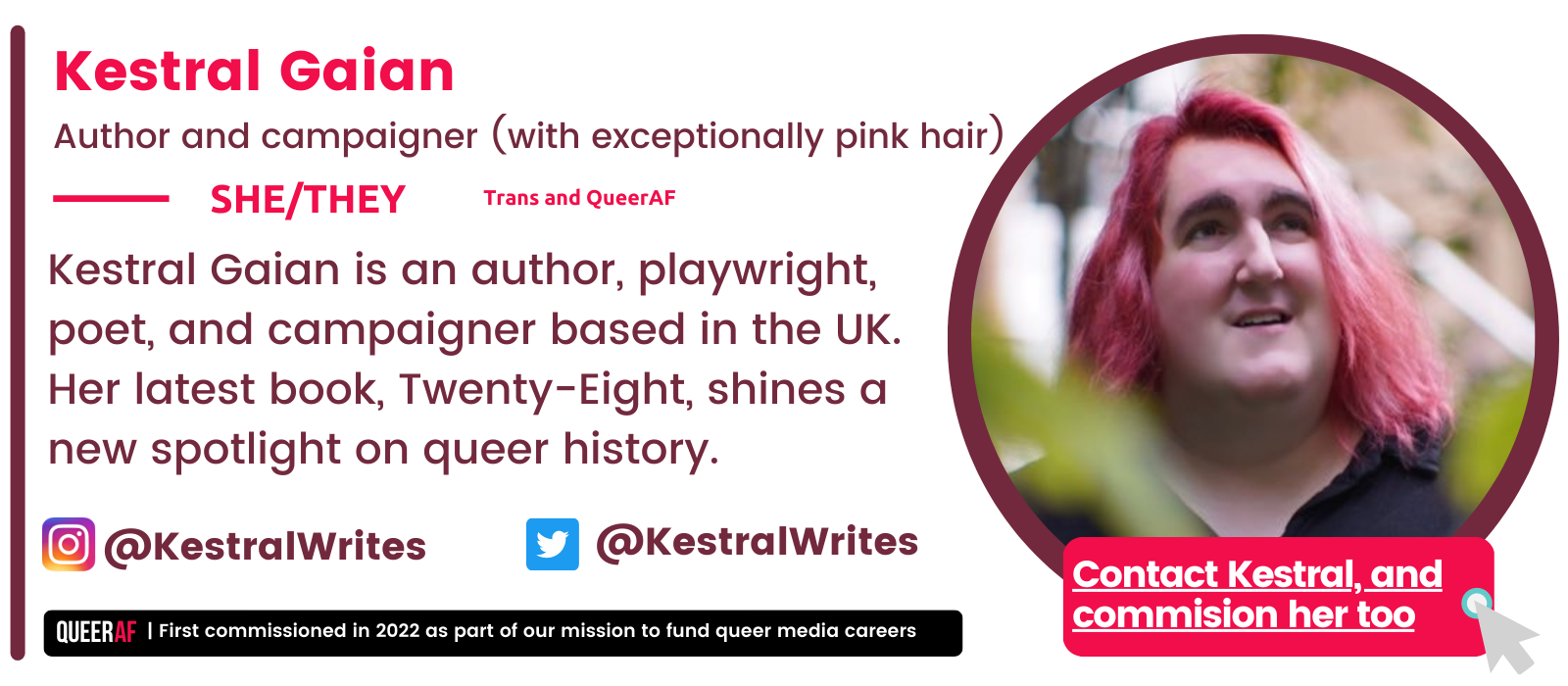
Get your copy of Twenty Eight: Stories from the Section 28 Generation, edited by Kestral Gaian in UK queer-bookstores and online now.
It's different, we know.
Do you get a kick out of reading QueerAF every week?
Do you feel better for learning about different LGBTQIA+ perspectives?
Empowered by the stories of other cool LGBTQIA+ folks?
Maybe you just love our super sick music recommendations? 🤘
We certainly get a kick out of writing it - but we can't do that without the support of readers like you.
Whatever you get out of QueerAF, as a member, you'd get even more! Early access to content, the chance to directly commission an article - and the knowledge that your cash is supporting queer creatives every single week.
Sound good? Take a look at becoming a QueerAF member.


